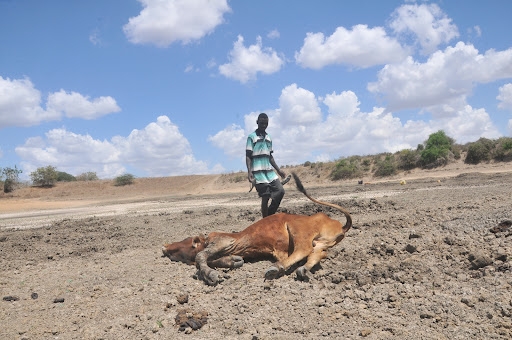The International Monetary Fund (IMF) has hinted at a further downgrade of global growth for the 2022/23 financial year.
In a blog dubbed 'Facing a Darkening Economic Outlook', IMF chief Kristalina Georgieva said the global economic outlook has darkened significantly and could get worse given the potential risks.
She nearly declared a global recession saying the lender will likely further downgrade April's 3.6 per cent forecast later this month.
The lender downgraded Kenya's forecast for this financial year to 5.7 per cent from six per cent
Georgieva said the G20 ministers and central bank governors will face a global economic outlook that has darkened significantly when they meet in Bali this week.
''As a result, recent indicators imply a weak second quarter—and we will be projecting a further downgrade to global growth for both 2022 and 2023 in our World Economic Outlook Update later this month,'' she says in the report.
The slowdown is attributed to a global supply glitch caused by Covid-19, the ongoing Russia-Ukraine crisis and high fuel prices.
According to IMF, inflation is higher than expected and has broadened beyond food and energy prices.
''This has prompted major central banks to announce further monetary tightening—which is necessary but will weigh on the recovery,'' IMF says in the report.
To counter the rising inflation, major central banks had to announce further monetary policy tightening, essentially through interest rate hikes.
Kenya, for instance, raised its base lending rate by half a percentage point to 7.5 per cent in May after inflation threatened to cross the government-set limit of 7.5 per cent.
The rising cost of living, however, defied the Monetary Policy Committee's measure to hit 7.9 per cent at the end of June compared to 7.1 per cent a month earlier.
Last week the US hiked its federal rate by 75 basis points, its largest rate increase since 1994. It is considering another increase of a similar rate to tame inflation which has hit a 41-year high.
On Wednesday, Joe Biden's regime said consumer prices soared 9.1 per cent compared with a year earlier, the biggest 12-month increase since 1981.
On a monthly basis, prices rose 1.3 per cent from May to June, another substantial increase, after prices had jumped 100 basis points the previous month.
Though monetary policy tightening was necessary, it may pull down the economic recovery.
The IMF suggested three major priorities in its report, asking countries to do everything in their power to bring down high inflation.
"Why? Because persistently high inflation could sink the recovery and further damage living standards, particularly for the vulnerable,'' IMF says in the blog.
It adds that fiscal policies must help and not hinder the central bank's efforts to bring down inflation. The lender has also called for a fresh impetus for global cooperation, led by the G20.
"As the G20 meets to navigate the current sea of troubles, we can all take inspiration from a Balinese phrase that captures the spirit that is needed more than ever," the report reads.














